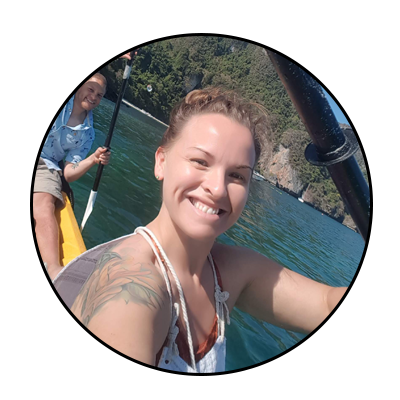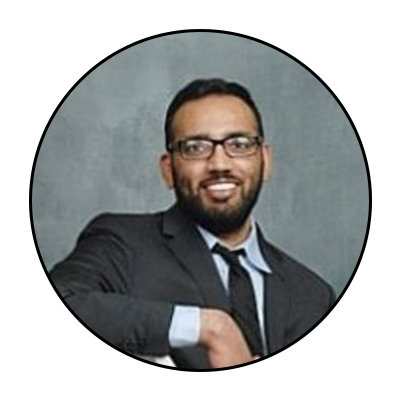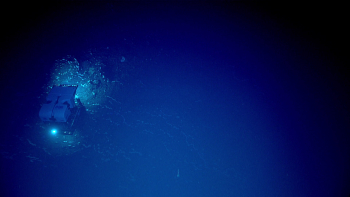Adrienne Copeland, Ph.D.
Adrienne Copeland is the acting Program Manager for the Deep Sea Coral Research and Technology Program within the NOAA Fisheries Office of Habitat Conservation. In this capacity, she coordinates deep-sea coral initiatives and helps translate research into actionable products for resource managers. She is currently on detail from NOAA Ocean Exploration, where she manages the competitive grant program funding work in ocean exploration, underwater cultural heritage, and technology innovation.
Prior to her current role, Adrienne worked with the NOAA Pacific Islands Fisheries Science Center’s Ecosystems and Oceanography Division, investigating marine ecosystem dynamics. She specialized in using active and passive acoustic methods to understand predator-prey relationships. Adrienne earned her bachelor’s degree in biology and a certificate in mathematical biology from Washington State University, and her doctorate in zoology with a marine biology specialization from the University of Hawaiʻi at Mānoa. Her research ranged from single-celled parasite genetics to mammalian behavior, but all of her diverse research projects employed mathematical tools to understand biological principles. She brings extensive experience in communications, event planning, and media relations. Her work has been featured across various platforms, including television, web stories, podcasts, and traditional print publications.
| |
 | Jessica Clyburn, M.S.
Jessica Clyburn serves as the Operations Coordinator for NOAA’s Deep Sea Coral Research and Technology Program, supporting program planning, coordination, and day-to-day operational functions across research, technology, and outreach activities. Prior to joining NOAA, she spent over13 years with the U.S. Army, where she implemented and enforced regulatory guidance in support of national and international environmental policies. Her work included developing and authoring standard operating procedures (SOPs), as well as evaluating and improving systems for the handling, storage, and disposal of hazardous materials to ensure environmental compliance and personnel safety. In 2023, Jessica earned her M.S. in Environmental Biology from Hood College. Her graduate research examined the recovery capacity of shallow coral species affected by thermal stressors. She also explored how environmental sodium chloride levels influenced the recovery and survival of native plants and algae and the resulting effects on local fish populations across different U.S. communities. She further investigated the impacts of Bacillus thuringiensis israelensis (Bti), a naturally occurring bacterium used in pest control, on ecological food webs. Jessica is currently pursuing a Master of Science degree in Geographic Information Systems (GIS) at the University of Maryland, further expanding her expertise in spatial analysis and environmental applications.
|
 | Savannah Goode, Ph.D.
Savannah Goode is a contracted marine ecologist (CSS, Inc.) working with NOAA’s Deep Sea Coral Research and Technology Program. Her primary focus is developing a national guide to sensitive deep-sea habitats and the animals that live in them. In this role, Savannah compiles and synthesizes information on deep-sea coral, sponge, and chemosynthetic habitats. This information provides resource managers with a way to identify these habitats and better understand their distribution and sensitivity to disturbance in U.S. waters. The guide development is funded by the Bureau of Ocean Energy Management.
Before working with NOAA, Savannah completed her Ph.D. in Marine Biology in 2023 at the Victoria University of Wellington in New Zealand. Her research focused on seamount deep-sea coral communities’ ability to recover from the impacts of bottom trawling, a seafloor-contact fishing method. Prior to starting her doctoral studies, Savannah completed her B.S. in Biology at Florida State University. During this time, she worked as an undergraduate research assistant analyzing deep-sea sediment core samples from the Gulf of Mexico and deep-sea photos from the Hawaiian Islands region. |
|
Image

| Robert McGuinn, M.A., M.S.
Robert McGuinn is a Research Program Manager at the Northern Gulf Institute (a NOAA Cooperative Institute) and is also the Data Systems Manager for the Program. He is broadly interested in applying data-driven, practical, and reproducible-analysis and reporting approaches to conservation management decision-making. His current responsibilities include data team coordination and project management, data life cycle design, customized analysis and visualization, and the creation of cartographic representations for reports and publications. Robert has a M.A. in the environment from Duke University (2001), a M.S. in plant biology from the University of California at Davis (1998), and a B.S. in forestry management from North Carolina State University (1994). He has been a NOAA affiliate since 2002. |
|
Image

| Arvind Shantharam, Ph.D.
Arvind K. Shantharam received his B.S. (2008) in environmental science from the University of Maryland, Baltimore County, his M.A. (2010) in applied ecology from Stony Brook University, and his Ph.D. (2020) from Florida State University. He currently works as a Research Associate with the Northern Gulf Institute and Data Manager for the Program. He has broad interests in deep-sea spatial and invertebrate ecology, conservation, biogeography, and data science applications in the deep ocean environment. |
|
Image

| David E. Sallis, M.S.
David Sallis is a Senior Research Engineer at the Northern Gulf Institute and the Data Quality Assurance Lead for the Program. David shepherds deep-sea coral and sponge data from intake, through quality assurance and finally to publication. Over the years David has developed a set of software tools to analyze and groom data submitted by at-sea scientists for publication in the National Database of Deep-Sea Corals and Sponges. During each quarterly update, he coordinates the publication process with the GIS and database teams. He generates dataset metadata, publishes the datasets on the deep-sea coral data portal, and manages the deep-sea coral and sponge sample image collection. David has an M.S. in Computer Science from the University of Southern Mississippi (2004) and a B.A. in Computer Science from Millsaps College (1987). He has been a NOAA affiliate since 2001. |
Staff Alumni
|
Image

| Heather Coleman, Ph.D.
Heather Coleman is the Program Manager for the Deep Sea Coral Research and Technology Program and sits within the Office of Habitat Conservation in NOAA Fisheries. In this role, she enjoys working with researchers around the country to convey scientific results to resource managers. Prior to joining NOAA, Heather worked at the National Academy of Sciences, where she synthesized best practices for monitoring restoration in the Gulf of Mexico. She also led a capacity-building program on tools to facilitate marine spatial planning at the Pacific Marine Analysis & Research Association. Her Ph.D., from University of California—Santa Barbara, was focused on ecological and demographic effects of natural oil seeps on marine invertebrate populations. Heather’s M.A. covered the history, politics, social dynamics, ecological effects, and costs and benefits of estuarine restoration in Istanbul, Turkey. Heather has also conducted research on shallow coral reef community dynamics, ecological effects of marine debris, oceanic biogeochemical cycling, and invasive plant ecology. Additionally, she has led volunteer programs to restore and monitor kelp forests and clean the beaches of her home city, Los Angeles, California.
|
|
Image

| Thomas Hourigan, Ph.D.
From 2006 to 2023, Tom Hourigan was the Chief Scientist for NOAA’s Deep Sea Coral Research and Technology Program (Program) within the Office of Habitat Conservation in NOAA Fisheries. Over the last 30 years, he worked at the intersection of science and conservation in both the United States and internationally. The Program exemplifies this intersection by building partnerships to discover and understand biologically diverse deep-sea ecosystems and applying this knowledge directly to their conservation. From 1997 to 2002, Tom represented the agency on marine issues at the Convention on Biological Diversity. He also coordinated the NOAA Fisheries’ components of the Coral Reef Conservation Program from 2000 to 2007. Prior to joining NOAA, Tom was the Senior Policy Advisor for Climate Change and Biodiversity at the U.S. Agency for International Development. His Ph.D., from the University of Hawaii, was focused on the ecology of coral reef fish. Tom was also Affiliate Faculty at the Department of Environmental Science and Policy at George Mason University. |
